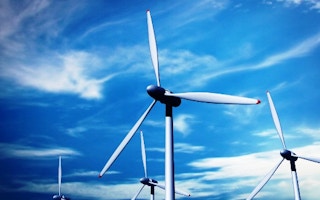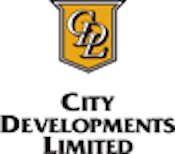As businesses debate ways to green their operations, they stand to learn from what others in their industry are doing, said panelists participating in the B4E Global Summit held in Jakarta on Thursday.
Indonesia’s industry can take cues from those of other countries - namely China, whose premier, Wen Jiabao, arrives in Jakarta Thursday evening to discuss a host of investment opportunities with Indonesian President Susilo Bambang Yudhoyono.
Peggy Liu, chairperson for the Joint US-China Collaboration on Clean Energy, pointed this out on the opening day of the two-day summit which gathered 700 business leaders on action for the environment.
“Nowhere else are we seeing such huge changes happen so quickly as in China today,” she said.
The Joint US-China Collaboration on Clean Energy works to push market-based, eco-friendly initiatives in China through international cooperation
Liu highlighted how industries in China are working to improve the environmental footprint of the country’s four main drivers of energy use – urbanisation, industry, consumption and electricity grids.
“Today China might look like the factory of the world, but in reality it’s changing very quickly to the cleantech laboratory of the world.”
By turning experiments into solutions that can be scaled up, China is creating knowledge other countries can build upon, and Liu said Indonesia should work with China rather than see it as a competitor in a race to develop new green technologies.
One initiative currently under way in China is a programme that trains mayors how to build sustainable cities by bringing in companies such as General Electric, Philips and McKinsey to talk about waste, water, transport and building solutions.
“We’re bringing solutions to people who can make the fastest change within the region,” said Liu.
The challenge for China at present is to create solutions that can be implemented on a large scale. In other countries, however, problems hinge more on political will.
In Indonesia, for instance, policies have to be put in place to incentivise green buying behaviour, said panellist Stuart Dean, who is chief of General Electric’s operations in Asean.
That’s where businesses are taking the lead. To help its customers in the power generation and air-traffic sector, GE ASEAN has created a program called “eco-magination,” a commitment to build innovative sustainable solutions while driving economic growth.
The electronic’s giant has invested $2 billion in research and development, and created new fuel-efficient products, such as the jet engines now used by Lion Air and Indonesia’s flagship carrier Garuda.
GE ASEAN is also helping farmers capture agricultural waste and turn it into fuel. The programme, Waste to Wealth, is a great way to monetise things sent up into the atmosphere, Dean said.
In another example, Nestle is investing in dairy farms in East Java, with the focus on maximising the use of locally sourced low-carbon materials. It’s putting biogas installations in farmers’ homes to provide families with cooking fuel, and helping cocoa industries in Sumatra create better yields so they can compete better with big suppliers in West Africa.
At the discussion, Sarwoto Atmosutarno, president director of Indonesia’s top mobile network operator Telkomsel, also explained how mobile operations can connect more people to the global economy by helping rural farmers access financial systems.
It’s clear solutions are available, said Lasse Gustavsson, the director of conservation at the World Wide Fund for Nature. But they rely on collaboration.
“In 2009 there was a major mental shift of Chinese looking inward to create their own sustainable solutions – still working with Western countries but really starting to stand on their own if they couldn’t get agreement worldwide,” said Liu.
Now businesses are realising that the key to collaboration is finding solutions that benefit all players. So, she asked, what is it you can bring to China and China can bring to you?
Eco-Business.com’s coverage of the B4E Global Summit 2011 is brought to you by City Developments Ltd (CDL).






















